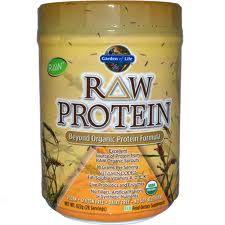Vegetarians frequently ask me for help with their nutrition. More than I imagined, to be honest. So to help these guys (and girls) out, I’m going to lay out some options for my vegetarian friends as well as the hardcore canivores.
Option #1 = Drop the practice and start eating animals! (My site, my blog = my opinion)
 Option #2 = I realize option #1 is shortsighted and often unrealistic. Whatever your reason for being vegetarian, I respect your right to choose and will not insult your beliefs and/or values. I WILL tell you that for muscle building, fat losing purposes you have scientifically put yourself at a disadvantage. A non-vegetarian diet (high protein, lower carbohydrate) is more conducive to the lean, muscular body that most athletes want. That is not opinion. That is fact. However, people everywhere have successfully maintained vegetarian lifestyles and competed, even excelled at the highest levels of sports. All-Pro NFL Tight End, Tony Gonzales is perhaps the most well-known example.
Option #2 = I realize option #1 is shortsighted and often unrealistic. Whatever your reason for being vegetarian, I respect your right to choose and will not insult your beliefs and/or values. I WILL tell you that for muscle building, fat losing purposes you have scientifically put yourself at a disadvantage. A non-vegetarian diet (high protein, lower carbohydrate) is more conducive to the lean, muscular body that most athletes want. That is not opinion. That is fact. However, people everywhere have successfully maintained vegetarian lifestyles and competed, even excelled at the highest levels of sports. All-Pro NFL Tight End, Tony Gonzales is perhaps the most well-known example. So what do you do?
Emphasize Protein!
The science of nutrition remains unchanged. Protein is and will always be the building blocks of muscle. It satisfies hunger, keeps us full, promotes proper immune system function, prevents muscle breakdown, and contributes to new muscle growth. The most common sources of protein are off-limits to vegetarians: chicken, turkey, beef, wild-game, etc.
That said, the biggest problem facing vegetarians isn’t total protein intake. The problem is getting that high protein diet, without consuming even higher amounts of carbohydrates. I’m not advocating a low-carb diet, but I am cautioning that quinoa, lentils, beans, and other vegtarian “protein sources” contain a 2:1 or worse ratio of carbs to protein. In the athletic and strength community, we often recommend a minimum of 1g protein per pound of bodyweight daily. Let’s say a 200 pound athlete gets 200g of protein from nothing but quinoa, lentils, and beans.
- Quinoa: 1 Serving = 1 Cup (cooked) = 222 Calories, 4g Fat, 39g Carbs, 8g Protein (almost 5:1 ratio)
- Lentils: 1 Serving = 1 Cup (cooked) = 230 Calories, 1g Fat, 40g Carbs, 18g Protein (2:1 ratio)
- Beans: 1 Serving = 1 Cup (cooked) = 227 Calories, 1g Fat, 41g Carbs, 15g Protein (almost 3:1 ratio)

This same mistake can be made with nuts and nut butters. It is true that nuts contain protein, but keep in mind that 50-90% of their total calories come from fat, depending on the nut. Bottom line…realize that most vegetarian “protein sources” are actually primary sources of other nutrients first!
However, some vegetarians WILL consume fish, dairy, or eggs. This is a great benefit to the athletic-minded vegetarian, as they are all great sources of protein, without the high doses of carbs (milk and some yogurts are an exception to this statement). If you fall into this category, adequate protein should never be a problem. Just be sure to have a steady supply of gum to hide that fish-breath!
Other vegetarians will avoid any animal products altogether. This is where body composition and performance nutrition gets tricky. Diet becomes even more important than ever due to the limited food options to provide the proper nutrients in just the right amounts.
I would highly suggest a non-dairy protein powder. There are many to choose from, including hemp, rice, pea, and wheat potein powders. There are even some raw and vegan specific blends that are designed to support muscle growth and recovery for athletes who don’t consume meat.

If you fall into the category of vegetarian that doesn’t eat meat at all, you going to have be careful. You’ll be forced to pay attention to the nutrient content of the foods you choose. This is NEVER A BAD THING! You’ll be miles ahead of the average person, and much more aware of the food you put into your body! Just remember to keep protein high and keep carbohydrates under control.
Let’s hear your questions &/or comments on this topic!